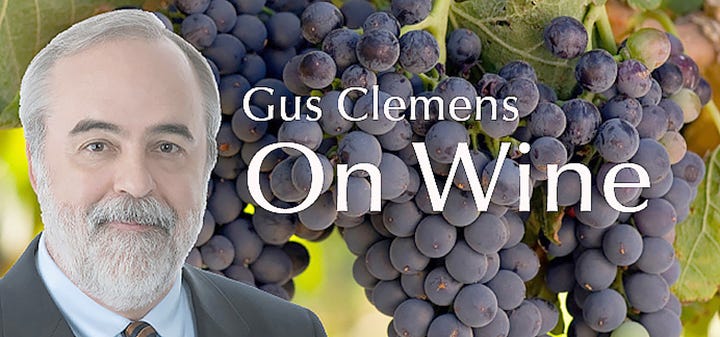This is the weekly newspaper column.
Wine grapes 11,000 years old 4-5-2023
It is long established that grapevines and wine date back thousands of years. Until recently, the accepted date was 8,000 years ago. New research has pushed that back to 11,000 years.
The previously accepted narrative is the first domesticated wine grapevines emerged in Georgia (the country located at the intersection of Eastern Europe and Western Asia). A large study involving 89 researchers and 23 different institutions recently published in the respected journal Science significantly alters the chronology.
Instead of Georgia 8,000 years ago, the study asserts there were two contemporaneous domestication events 11,000 years ago. One occurred in the Levant—modern day Israel, Palestine, Lebanon, and Jordan. The other occurred in the Caucasus, which includes Georgia.
Domesticated vines from the Levant made their way westward with human populations. The vitis vinifera varieties that are the foundation of most wine we drink today happened through a series of accidental cross-breeding with wild vines. Human domestication in the Levant also gave us wheat, barley, flax, and lentils.
The domesticated vines from the Caucasus gave rise to different varieties now grown in Georgia and Armenia. Human domestication of both varieties gives both groups many shared features even if they are different species.
In both cases, the domestication of grapes parallels the earliest domestication of cereals and the rise of protocivilizations. While there is scant archeological evidence of winemaking, there is tangental evidence. In the Near East, domestication favored sweeter grapes for eating. In Europe, domestication tilted to making smaller, less sweet grapes with thicker skins—not so good for eating, ideal for winemaking.
Researchers acknowledge more work has to be done. This is science, more work always has to be done. But it appears winemaking—at least the domestication of grapevines—likely is as old as agriculture and older than civilization.
When you sip wine tonight, ponder that you are sharing a libation with ancestors stretching back to time out of memory.
Tasting notes:
• Alain Jaume Bellissime Rosé 2021: clean, pure Rhône rosé from Chateauneuf du Pape area using organic practices. $12-16 Link to my review
• Kono Sauvignon Blanc, Marlborough 2021: crisp, refreshing, vibrant easy-sipping winner. $14-15 Link to my review
• Vina Ventisquero Grey Glacier Las Terrazas Vineyard Single Block Pinot Noir, Leyda Valley, Chile 2017: light-medium palate pleaser; fruit forward, compelling, superb value. $20-22 Link to my review
• Lake Sonoma Winery Malbec Lazy Dog Vineyard, Sonoma Valley 2019: spot-on California malbec; classic malbec qualities in fruit, tannins, and overall profile. $40-45 Link to my review
Last round: What is a cow without a map? Udderly lost. Wine time.
Email: wine@cwadv.com
Newsletter: gusclemens.substack.com
Website: gusclemensonwine.com
Facebook: facebook.com/GusClemensOnWine/posts/
Twitter: @gusclemens
Links worth exploring
Diary of a Serial Hostess Ins and outs of entertaining; witty anecdotes of life in the stylish lane.
As We Eat Multi-platform storytelling explores how food connects, defines, inspires.
Balanced Diet Original recipes, curated links about food systems, recipe reviews.















Share this post